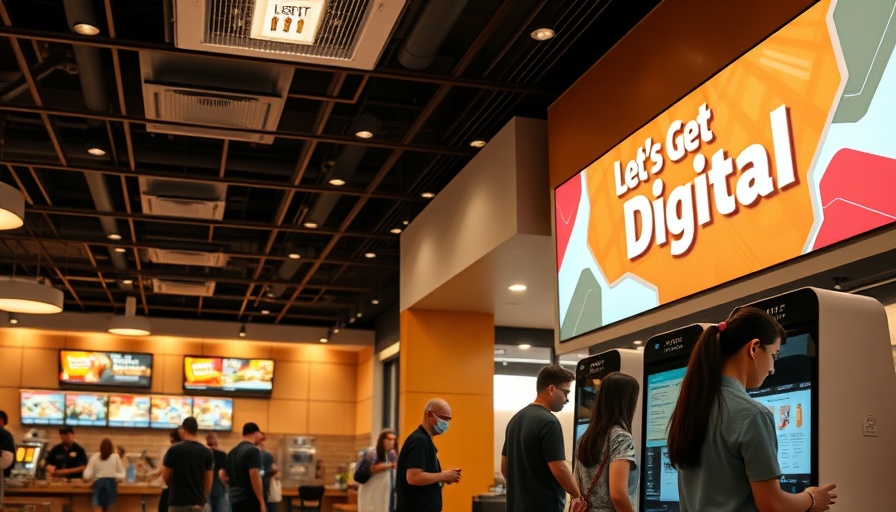
Adapting to Economic Challenges: The New Marketing Menu
As economic uncertainty looms, with fluctuating tariffs and dwindling consumer confidence, major restaurant chains are rethinking their marketing strategies to remain competitive. Fast-food giants like McDonald’s have seen significant drops in same-store sales, pushing them to innovate and refocus their campaigns.
The Nostalgia Factor: A Key Strategy
Marketers are increasingly using nostalgia as a powerful tool in their campaigns. Instead of primarily competing on price—which can erode margins—brands are diving deep into cultural narratives that resonate with consumers. For example, McDonald's has revived beloved characters and promotions, building a sense of familiarity and comfort that helps customers associate positive experiences with the brand.
The Role of Technology in Boosting Engagement
Investments in technology are also pivotal. The use of digital platforms enhances customer engagement far beyond traditional advertising. From mobile apps to social media campaigns, brands are creating immersive experiences that resonate with tech-savvy audiences. This shift has allowed chains like Chick-fil-A and Taco Bell to enhance customer loyalty programs, providing localized promotions and personalized offers that appeal directly to consumer preferences.
Culture Connect: Collaborations that Resonate
Collaborative marketing campaigns are becoming essential for today’s quick-service restaurants. McDonald’s, for instance, partnered with popular cultural phenomena like the "Minecraft Movie," launching one of its most extensive global campaigns. This engagement not only grabs attention but also ties the brand to positive cultural moments, presenting it as a relevant participant in consumers’ lives.
Looking Ahead: Future Trends in Restaurant Marketing
The necessity for restaurant chains to adapt and innovate may lead to exciting trends in marketing over the coming years. As they embrace flexibility in their strategies, we can anticipate further exploratory campaigns that leverage current cultural trends and consumer interests. These adaptive strategies may become the norm as brands navigate through ongoing economic difficulties, aiming to foster sustainable customer relationships.
Conclusion: The Importance of Staying Relevant
The current marketing landscape requires quick-service and fast-casual restaurant brands to remain nimble, continuously seeking new ways to engage consumers meaningfully. As competition heightens and economic pressures mount, understanding the nuances of consumer desires will be integral. For small businesses, adopting some of these tactics can enhance marketing efforts, helping them stay afloat in challenging economic waters.
 Add Row
Add Row  Add
Add 




Write A Comment